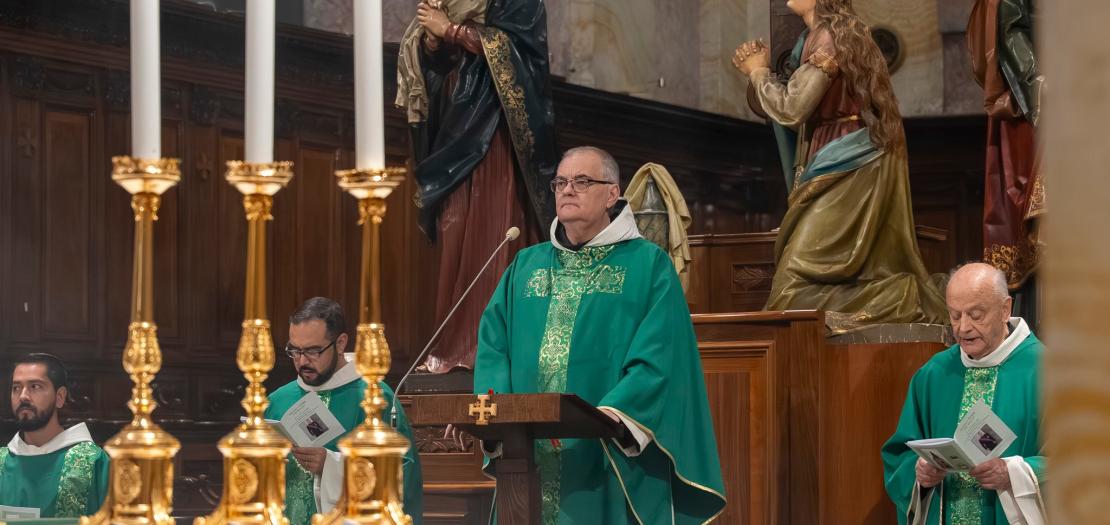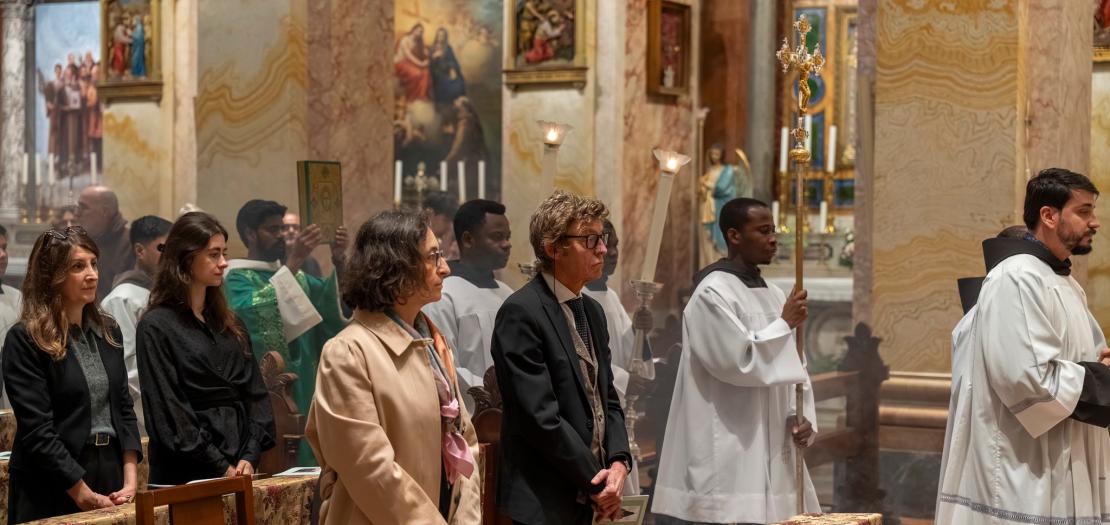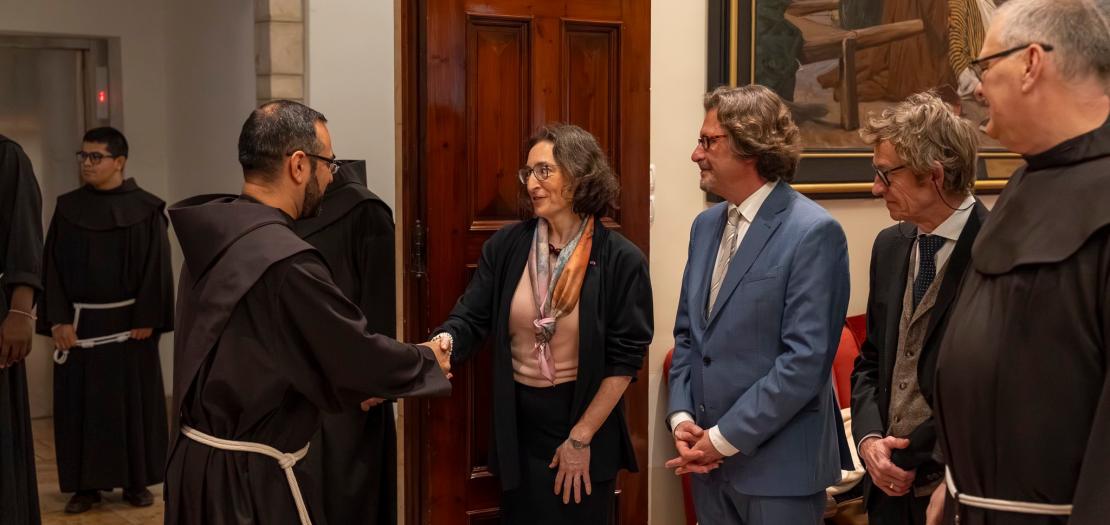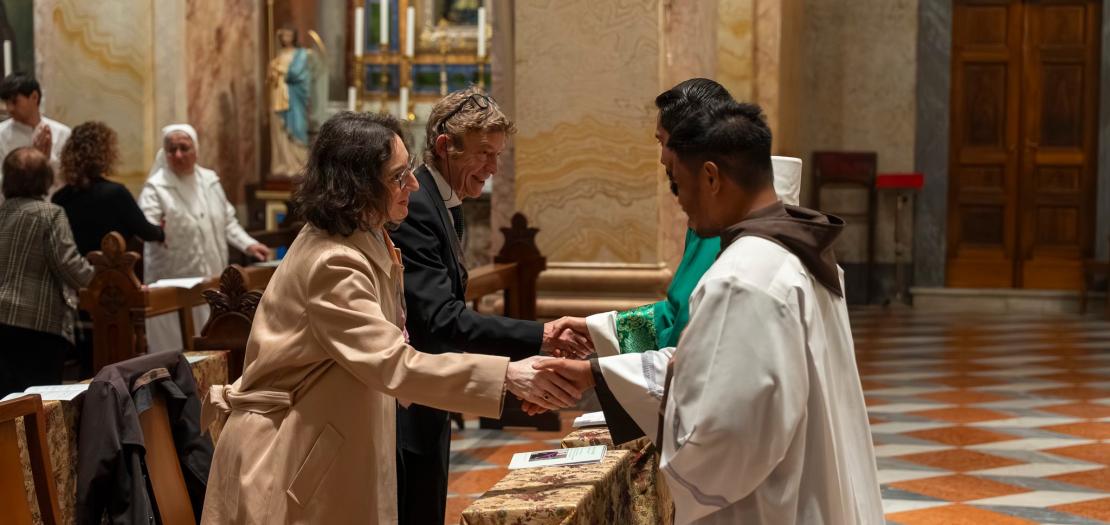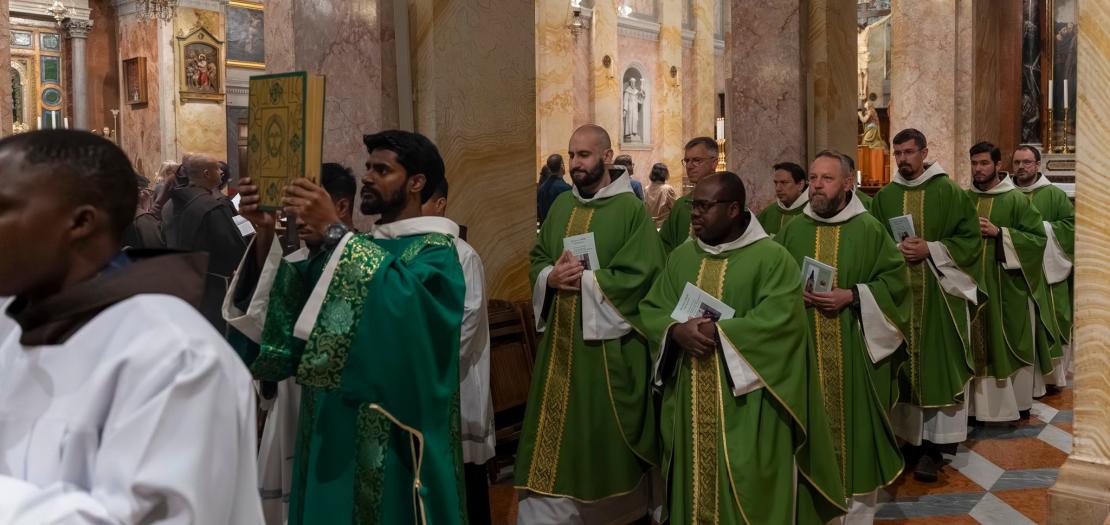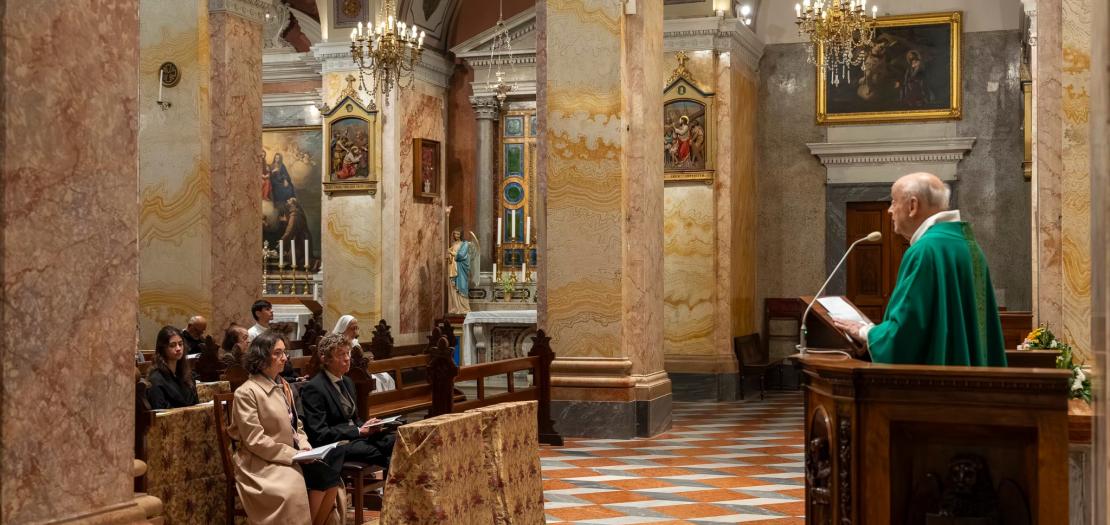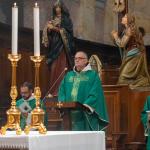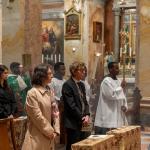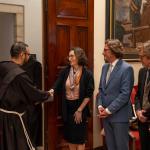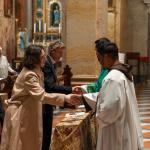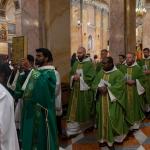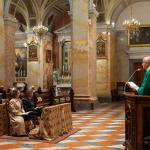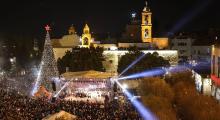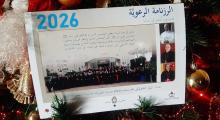Issued by the Catholic Center for Studies and Media - Jordan. Editor-in-chief Fr. Rif'at Bader - موقع أبونا abouna.org
In the heart of the Old City of Jerusalem, in the church of the Convent of Saint Saviour, the Custody of the Holy Land has welcomed the traditional Mass in honor of the Belgian Dynasty. The celebration, which renews the long-standing relationship between Belgium and the Franciscan mission in the Holy Places, brought together religious, diplomats and members of the local Catholic community.
The liturgy was presided over by Fr. Stéphane Milovitch. The homily was entrusted instead to Father Frans Bouwen, a Belgian missionary of the White Fathers and an authoritative voice in the field of ecumenical dialogue in Jerusalem. Among those present was also the Consul General of Belgium in Jerusalem and in the Palestinian Territories, Anick Van Calster, who officially took part in the celebration.
A Mass between memory and responsibility
From the very first words, Fr. Bouwen recalled the meaning of the day, an occasion to pray for King Philippe, Queen Mathilde and the royal family, but also for the entire Belgian people, "in the midst of the challenges that all of us face today."
With a sober yet incisive style, the priest outlined a picture of the contemporary world, marked by "great inequalities, the violence of war and massive movements of populations." These dynamics generate fear and closure towards what is different, fears which, he observed, find an echo in the words of the Gospel proclaimed during the Mass.
Recalling the passage in which Jesus speaks of "nation rising against nation" and "fearful phenomena," Bouwen stressed that the Gospel teaching does not seek to describe current events but to recall the recurring fragility of human history. A fragility which, he said, must not lead either to resignation or to passivity.
"Not with arms folded": faith as commitment
The heart of the homily was an invitation not to be content with hoping that "everything will pass," but to cultivate an active hope. Bouwen recalled the words of Jesus, "Not a hair of your head will perish," as the foundation of a trust capable of moving us to action.
Quoting Saint Paul, he invited those present not to fall into the temptation of passively waiting for better days, "We cannot remain indifferent without doing anything," he said, paraphrasing the Apostle.
We are instead called to take part in God’s plan, "life, reconciliation, freedom and peace."
"Our possibilities are limited," he acknowledged, "but we can always add our own small stone, with eyes wide open and a creative love."
A particularly heartfelt appeal concerned the Holy Land, described as a situation "humanly without a way out." It is precisely here, he insisted, that faith must be translated into small gestures of reconciliation, mutual help and the defense of human dignity, true "seeds of the future."
A prayer for Belgium and its authorities
Bouwen then invited everyone to pray for Belgium, involved like all nations "in the uncertainties of our world." A prayer addressed also to the king, the government and the institutions of the country, so that they may find "strength and discernment" in guiding the nation towards a more just and welcoming society.
The homily concluded with the Gospel verse that inspired its entire message, "By your perseverance you will save your lives."
A bond that continues
The celebration of the Belgian Dynasty at Saint Saviour is part of the tradition of national Masses supported by the Custody of the Holy Land. Over the centuries, the Custody has been able to carry out its mission thanks to the constant support of several European nations which, for historical, religious and diplomatic reasons, have become its supporting pillars.
France, Italy, Spain and Belgium have in fact guaranteed over the centuries material aid, political protection and essential cultural contributions for the safeguarding of the Holy Places and of the Christian communities present in the Middle East.
This privileged bond, born from the intertwining of faith, tradition and international responsibility, continues today to be expressed in forms of cooperation, solidarity and support for the Christian presence in the Holy Land.
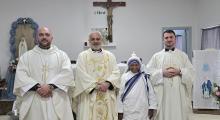 Sister Patrick, of Mother Teresa's Missionaries of Charity, marks 60th anniversary of her consecration
Sister Patrick, of Mother Teresa's Missionaries of Charity, marks 60th anniversary of her consecration 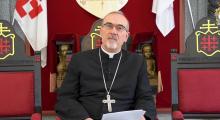 Cardinal Pizzaballa’s vision for a new leadership at the heart of the Holy Land’s conflicts
Cardinal Pizzaballa’s vision for a new leadership at the heart of the Holy Land’s conflicts 

